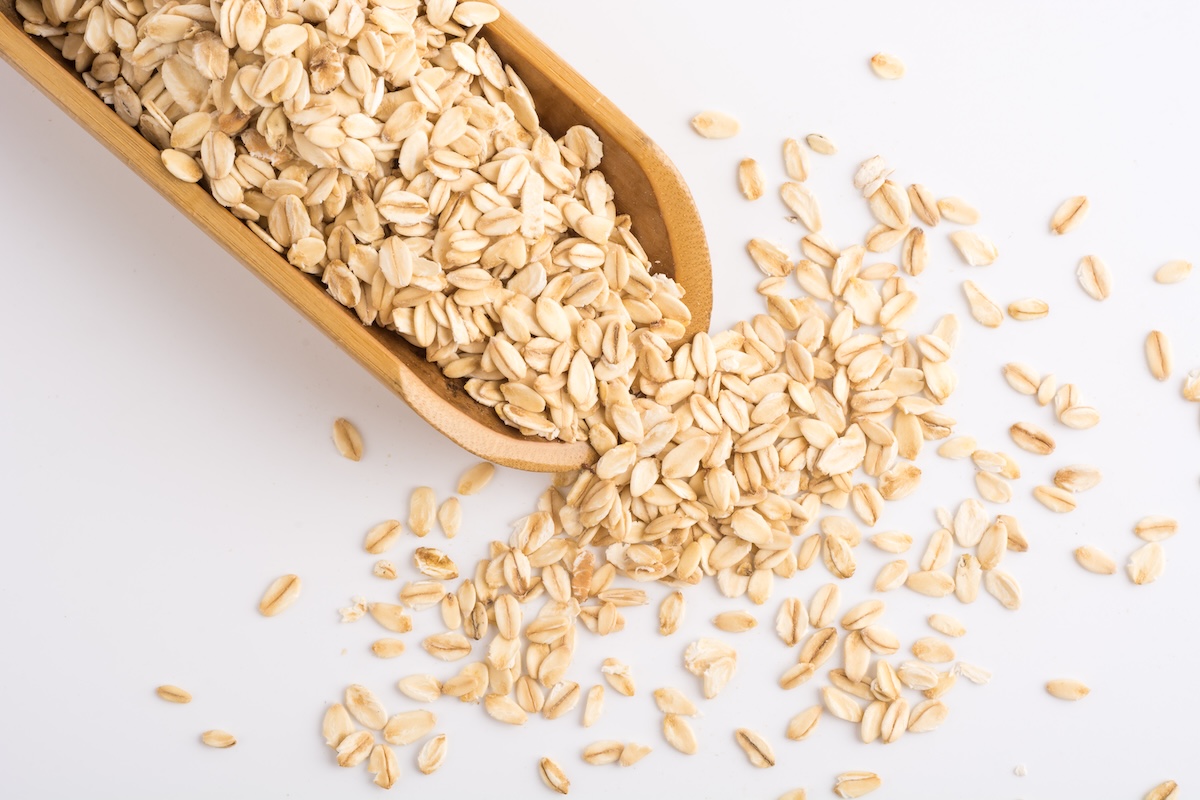Cholesterol is a word that often makes people feel uneasy—but it doesn’t have to be. Your body needs cholesterol to build cells and produce certain hormones. The problem starts when your cholesterol levels get too high, especially the “bad” LDL cholesterol. High LDL levels can raise your risk of heart disease and stroke. Fortunately, what you eat can make a big difference.

While medication can help in some cases, one of the best ways to manage cholesterol is through your diet. Certain foods can help lower bad cholesterol or raise good cholesterol (HDL), while also supporting your heart in other ways. And you don’t have to give up all your favorite meals—just make some smart swaps and add a few heart-healthy choices to your plate each day.
In this article, we’ll explore 7 everyday foods that are known to help lower cholesterol naturally and support a healthy heart.
1. Oats
Starting your morning with a bowl of oatmeal does more than keep you full—it also supports your heart. Oats are rich in a type of fiber called beta-glucan, which helps reduce the amount of LDL cholesterol in your blood.
This type of fiber forms a gel in your digestive system that traps cholesterol and helps carry it out of the body. You don’t need a large amount—just one and a half cups of cooked oatmeal each day can make a noticeable difference over time.
You can also get the same benefits from oat-based snacks or adding oat bran to your yogurt or smoothies.
2. Beans and Lentils
Beans and lentils are great for your heart and your overall health. They’re packed with soluble fiber, which is the type that helps lower cholesterol. They also keep you full longer, making it easier to manage your weight—another important factor in controlling cholesterol levels.
Whether you choose black beans, kidney beans, chickpeas, or lentils, they’re all excellent additions to soups, salads, or side dishes. Regularly swapping meat for beans just a few times a week can help lower your LDL levels without losing flavor or satisfaction.
3. Nuts
Nuts like almonds, walnuts, and pistachios contain healthy fats that can help lower LDL cholesterol and support healthy blood vessels. They also contain fiber, plant sterols, and antioxidants that work together to improve heart health.
Eating a small handful of nuts each day—about one ounce—is linked to better cholesterol numbers. Just be sure to choose unsalted, raw or dry-roasted options, since salty or sugary coatings can cancel out some of the benefits.
You can also sprinkle chopped nuts onto yogurt, salads, or oatmeal for an easy, satisfying crunch.
4. Fatty Fish
Fish like salmon, sardines, mackerel, and trout are rich in omega-3 fatty acids, which are healthy fats known to reduce triglycerides and protect against heart disease. While omega-3s don’t lower LDL cholesterol directly, they help in other important ways—by reducing inflammation, slowing the buildup of plaque, and helping your heart beat more steadily.
Experts recommend eating fatty fish at least twice a week to gain the full benefits. Grilled or baked fish is the best choice, as fried options can add unhealthy fats that cancel out the benefits.
If you’re not a fan of fish, talk to your doctor about omega-3 supplements—but whole food sources are usually better.
5. Avocados
Avocados are more than just a trendy toast topping—they’re loaded with heart-healthy monounsaturated fats and fiber, both of which can help lower LDL cholesterol while raising HDL (the good kind).
Adding half an avocado to your meal each day may help improve your cholesterol numbers. They’re also packed with potassium and antioxidants, which support overall heart health.
Use avocado as a spread, toss slices into salads, or blend it into smoothies. Its creamy texture makes it a great alternative to mayo or butter on sandwiches.
6. Olive Oil
Olive oil is a staple in heart-healthy diets like the Mediterranean diet. It’s rich in monounsaturated fats and contains antioxidants that reduce inflammation and improve cholesterol levels.
Replacing saturated fats—like butter or lard—with olive oil in cooking or dressings can help protect your arteries and lower your risk of heart disease. Just remember that olive oil is still high in calories, so use it in moderation.
Try using it to sauté vegetables, drizzle over salads, or mix with vinegar for a simple homemade dressing.
7. Fruits That Are High in Soluble Fiber
Fruits like apples, oranges, berries, and pears are full of soluble fiber, which helps lower cholesterol levels by binding to it in your digestive system and removing it from the body. They’re also packed with antioxidants and nutrients that support your heart and boost your immune system.
Eating whole fruit instead of drinking fruit juice is best, since juice often lacks fiber and adds extra sugar. Aim to include a serving of fruit at each meal, or snack on fresh fruit during the day to support healthy cholesterol levels. Berries, in particular, offer an extra antioxidant punch and can easily be added to oatmeal or yogurt.
